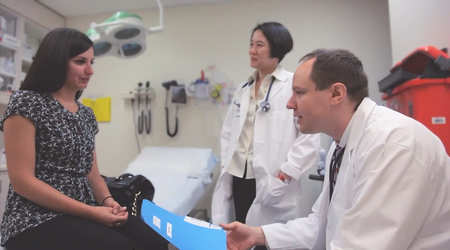Welcome to AMDL
(RRID: SCR_027525)
AMDL is a clinical CAP/CLIA accredited molecular diagnostics
laboratory at the Princess Margaret Cancer Centre, located
on the 7th floor. The primary mission of AMDL is to support
clinical trials and translational research projects requiring
clinical-grade (CAP/CLIA) molecular testing at Princess Margaret Cancer Centre. AMDL works
closely with our partner Molecular Diagnostics lab in Toronto
General Hospital to transition protocols into clinical tests.
The AMDL laboratory is led by Dr. Harriet Feilotter, who is a CCMG certified Laboratory Director. Due to the
required laboratory accreditations (CAP# 7175217/CLIA#
99D1106115), laboratory technical staff must be certified CMLTO
licensed Molecular Technologists. In addition, our team is also
comprised of annotation and informatics supporting staff. The
annotation team consists of PhD researchers that translate
pertinent clinical and scientific literature that identify
diagnostic, prognostic and targeted cancer therapy indicators for
genetic testing results for patients with cancer or those at risk
for hereditary cancer. AMDL staff also work very closely with our
Princess Margaret Cancer Centre collaborators (pathologists, medical and surgical
oncologists, geneticists, scientists and other physicians) to
ensure that project needs are met and clinical research and
translational studies are performed to a high clinical standard.
CLINICAL-GRADE (CAP/CLIA) MOLECULAR TESTING PROVIDED AT THE PRINCESS
MARGARET
Since 2011, over
20,000
samples have been processed
Trusted by over
100
researchers
Over
years of experience since 2011


